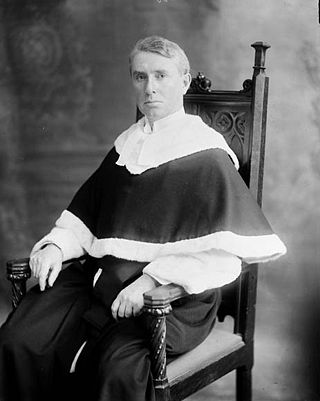External links
| General | |
|---|---|
| National libraries | |
| | This Government of Oklahoma-related article is a stub. You can help Wikipedia by expanding it. |
| Agency overview | |
|---|---|
| Formed | 1997 |
| Preceding agencies |
|
| Dissolved | August 26, 2009 |
| Superseding agency | |
| Website | www.ocjrc.net |
The Oklahoma Sentencing Commission was an independent agency of the government of Oklahoma. Now defunct, the Commission was established to maintain an effective, fair, and efficient sentencing system for the state of Oklahoma. The 17-member commission was also charged with enhancing public safety, providing truth-in-sentencing and unwarranted disparity in the sentencing of individuals convicted in the state's criminal justice system.
The Commission was provided staff support by the Oklahoma Criminal Justice Resource Center. The Commission appoints the Director of the OCJRC.
On August 26, 2009, the Commission was dissolved following the transfer of the duties of the Center to the Oklahoma State Bureau of Investigation.
Sentencing reform was initially begun in 1989 when the Oklahoma Legislature created the Sentencing and Release Policy Committee. The work of the committee evolved into the creation of the Truth in Sentencing Policy Advisory Commission in 1994, followed by the creation of the Oklahoma Sentencing Commission in 1997. In 2009, the Commission was dissolved following the termination and transfer of function of the Oklahoma Criminal Justice Resource Center to the Oklahoma State Bureau of Investigation.
The membership of the Commission was composed of the following, all serving five year terms:

The United States Marshals Service (USMS) is a federal law enforcement agency in the United States. The USMS is a bureau within the U.S. Department of Justice, operating under the direction of the attorney general, but serves as the enforcement arm of the United States federal courts to ensure the effective operation of the judiciary and integrity of the Constitution. It is the oldest U.S. federal law enforcement agency, created by the Judiciary Act of 1789 during the presidency of George Washington as the "Office of the United States Marshal". The USMS as it stands today was established in 1969 to provide guidance and assistance to U.S. Marshals throughout the federal judicial districts.

The term magistrate is used in a variety of systems of governments and laws to refer to a civilian officer who administers the law. In ancient Rome, a magistratus was one of the highest ranking government officers, and possessed both judicial and executive powers. In other parts of the world, such as China, a magistrate was responsible for administration over a particular geographic area. Today, in some jurisdictions, a magistrate is a judicial officer who hears cases in a lower court, and typically deals with more minor or preliminary matters. In other jurisdictions, magistrates are typically trained volunteers appointed to deal with criminal and civil matters in their local areas.

A prosecutor is a legal representative of the prosecution in states with either the common law adversarial system or the civil law inquisitorial system. The prosecution is the legal party responsible for presenting the case in a criminal trial against an individual accused of breaking the law. Typically, the prosecutor represents the state or the government in the case brought against the accused person.

Francis Anthony Keating II is an American attorney and politician who served as the 25th governor of Oklahoma from 1995 to 2003.

The Supreme Court of Oklahoma is a court of appeal for non-criminal cases, one of the two highest judicial bodies in the U.S. state of Oklahoma, and leads the judiciary of Oklahoma, the judicial branch of the government of Oklahoma.
In criminal law, the right to counsel means a defendant has a legal right to have the assistance of counsel and, if the defendant cannot afford a lawyer, requires that the government appoint one or pay the defendant's legal expenses. The right to counsel is generally regarded as a constituent of the right to a fair trial. Historically, however, not all countries have always recognized the right to counsel. The right is often included in national constitutions. Of the 194 constitutions currently in force, 153 have language to this effect.

Parliament of Sierra Leone is the legislative branch of the government of Sierra Leone. It is principally responsible for making laws. The Sierra Leone parliament consists of 146 members, of which 132 members are directly elected from across Sierra Leone's 16 districts, while 14 are paramount chiefs appointed from the 14 rural districts. The parliament is led by the Speaker of the House; the position is currently held by Abass Bundu of the Sierra Leone People's Party. The current elected 132 ordinary members of parliament are composed of members of the All People's Congress, the Sierra Leone People's Party which are the two largest political parties in Sierra Leone plus two other parties, the National Grand Coalition and the Coalition for Change and finally, three Independent members who were not elected under any party.
The Attorney General of New Hampshire is a constitutional officer of the U.S. state of New Hampshire who serves as head of the New Hampshire Department of Justice. As of April 22, 2021, the state's attorney general is John Formella.

The government of the U.S. State of Oklahoma, established by the Oklahoma Constitution, is a republican democracy modeled after the federal government of the United States. The state government has three branches: the executive, legislative, and judicial. Through a system of separation of powers or "checks and balances," each of these branches has some authority to act on its own, some authority to regulate the other two branches, and has some of its own authority, in turn, regulated by the other branches.

The Oklahoma Court System is the judicial system for the U.S. State of Oklahoma. Based in Oklahoma City, the court system is a unified state court system that functions under the Chief Justice of Oklahoma who is its administrator-in-chief.

The Oklahoma State Bureau of Investigation (OSBI) is an independent state law enforcement agency of the government of Oklahoma. The OSBI assists the county sheriff offices and city police departments of the state, and is the primary investigative agency of the state government. OSBI works independent of the Oklahoma Department of Public Safety to investigate criminal law violations within the state at the request of statutory authorized requesters. The OSBI was created in 1925 during the term of Governor Martin E. Trapp.
The New South Wales Sentencing Council is an advisory body established by the New South Wales Government to provide guidelines and to promote consistency in sentencing of offenders in New South Wales, a state of Australia. The council provides advice and counsel to the Attorney General of New South Wales on issues relating to sentencing, parole periods for sentences, trends, and the operation of parole. The council aims to promote consistency and transparency in sentencing and promoting public understanding of the sentencing process. The Sentencing Council consists of members appointed by the attorney general. Those members are made up from a diverse background to better represent the views of the community. They include retired judges, law enforcement officers, defence lawyers, indigenous community members and persons associated with victims of crime.
The Oklahoma Criminal Justice Resource Center (OCJRC) was an agency of the State of Oklahoma. Dissolved on July 1, 2009, the Center was a division of the Oklahoma Legislative Service Bureau with its director appointed by the Oklahoma Sentencing Commission (OSC). As its primary responsibilities, the OCJRC provides research and analysis relating to the state's criminal justice system and integrated, customizable records management software for law enforcement in the form of the Offender Data Information System (ODIS). OCJRC serves as the state's Statistical Analysis Center (SAC), the official point of contact with the federal Bureau of Justice Statistics. As the state's SAC, OCJRC is a member of the Justice Research and Statistics Association.

The Oklahoma District Attorneys Council (DAC) is an agency of the state of Oklahoma that provides professional organization for the education, training and coordination of technical efforts of all Oklahoma state prosecutors and to maintain and improve prosecutor efficiency and effectiveness in enforcing the laws of the state.
Maryland State Commission on Criminal Sentencing Policy, (MSCCSP), is an agency within the state government of Maryland, that sets guidelines which are used by Maryland circuit court judges in sentencing persons convicted of crimes in the state.

The Chief Justice of Malta is the primus inter pares of the members of the Maltese judiciary and leads the business of the Superior Courts of Malta.
The Judiciary of Vermont is the state court system of Vermont, charged with Vermont law.

The Council on Firefighting Training (COFT) was the agency of the state of Oklahoma which supports Oklahoma's state, county and local fire protection agencies by identifying and recommending training needs.

The Judicial Service Commission (JSC) of Kenya is an independent Commission established under Article 171 of the Constitution of Kenya. Its mandate as stipulated in Article 172 of the Constitution is to promote and facilitate the independence and accountability of the Judiciary and the efficient, effective and transparent administration of justice. The commission has 11 members with the initial team appointed in December 2010.

The Department of Justice and Attorney-General (DJAG) is a department of the Queensland Government with responsibilities for the administration of justice, support to Queensland courts, regulatory policy and consumer protection, legal aid, youth justice, corrective services, and other community and legal services.